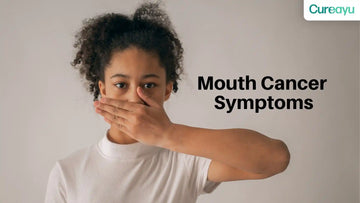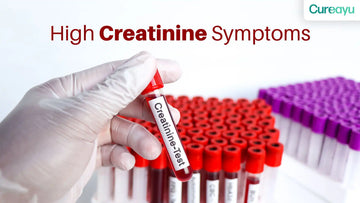Mouth cancer, also known as oral cancer, can develop in any part of the mouth, including the lips, gums, tongue, and roof of the mouth. Recognizing mouth cancer symptoms early is crucial for timely diagnosis and treatment. In this blog, we will discuss in detail what mouth cancer is, its starting stages, the symptoms to watch for, causes, treatment possibilities, prevention tips, and when to see a doctor.
Mouth cancer is a type of head and neck cancer that can affect various areas within the mouth. It often begins as a small, painless sore or ulcer but can quickly develop into something more severe if left untreated. While anyone can develop mouth cancer, certain risk factors like smoking, alcohol use, and exposure to human papillomavirus (HPV) increase the likelihood of the disease. Many people overlook the early symptoms of mouth cancer, mistaking them for common oral issues like mouth sores or gum infections. Unfortunately, this delay in seeking medical advice can worsen the condition. Early detection is key to improving the survival rate, making it essential to understand the symptoms and causes of mouth cancer.
Also Read: Types Of Cancer: What, Where and How of the Cancer Varieties
What is Mouth Cancer?
Mouth cancer occurs when abnormal cells in the mouth begin to grow uncontrollably, forming tumors. These tumors can affect different parts of the mouth, including the tongue, cheeks, gums, floor of the mouth, and roof of the mouth. Mouth cancer can spread to surrounding tissues, such as lymph nodes in the neck, or to other parts of the body.
The disease usually starts in the squamous cells, which line the mouth, tongue, and lips. When these cells undergo DNA changes, they begin to multiply abnormally, leading to the development of cancerous tumors. Early detection and treatment are critical for preventing the spread of mouth cancer to other areas of the body.
Mouth Cancer Starting Stage
The starting stage of mouth cancer, known as stage 0 or carcinoma in situ, refers to abnormal cells that have not yet spread to deeper layers of tissue. At this stage, the cancer is localized, and there is a high chance of successful treatment. However, the starting stage often shows no noticeable symptoms, which makes regular dental check-ups important for early detection.
Also Read: Cancer – Where it Starts: Understanding Symptoms, Causes, and Early Detection
Mouth Cancer Symptoms
- Persistent Sores or Ulcers: A sore or ulcer in the mouth that doesn’t heal within two weeks is one of the most common early signs of mouth cancer. These sores may be painful or painless and can appear on the lips, tongue, or inside the cheeks.
- Lumps or Growths: Unexplained lumps, thickening of tissues, or growths in the mouth or neck are signs that should not be ignored. These lumps can be felt when swallowing or speaking.
- White or Red Patches: Mouth cancer often presents as white (leukoplakia) or red patches (erythroplakia) on the lining of the mouth. These patches may be painless but are early indicators of abnormal cell growth.
- Difficulty Chewing or Swallowing: Difficulty in chewing or swallowing food, accompanied by pain or a sensation of something stuck in the throat, could be a symptom of mouth cancer.
- Mouth Pain: Persistent pain in the mouth, jaw, or ear is another warning sign. This pain may radiate and affect other areas, making it difficult to pinpoint the exact cause.
- Numbness in the Mouth or Tongue: A feeling of numbness or tingling in the tongue or lips may be a sign of nerve involvement due to the growth of cancer cells.
- Unexplained Bleeding: Frequent bleeding from the mouth, gums, or throat without a known cause can also be an indication of oral cancer.
- Loose Teeth: Mouth cancer can affect the gums and jawbone, causing teeth to become loose without any obvious dental issue.
Mouth Cancer Causes
- Tobacco Use: Smoking cigarettes, cigars, or using smokeless tobacco is one of the leading causes of mouth cancer. The harmful chemicals in tobacco products damage the cells lining the mouth.
- Excessive Alcohol: Consumption Drinking alcohol excessively increases the risk of mouth cancer, especially when combined with smoking. Alcohol irritates the mouth’s lining, making it more vulnerable to carcinogens.
- Human Papillomavirus (HPV): Infection HPV, a sexually transmitted virus, is increasingly linked to mouth and throat cancers. Certain strains of HPV are known to trigger the abnormal growth of cells in the oral region.
- Sun Exposure: Prolonged exposure to the sun without protection can cause lip cancer, which is a form of mouth cancer. Using lip balm with SPF can reduce this risk.
- Poor Diet: A diet low in fruits and vegetables can increase the risk of mouth cancer. Antioxidants in fresh produce help repair damaged cells, reducing the chance of cancer development.
Also Read: Early Signs and Symptoms of Breast Cancer: What You Need to Know
Is Mouth Cancer Curable?
Yes, mouth cancer is curable if detected early. Treatments include surgery, radiation therapy, chemotherapy, or a combination of these methods, depending on the stage and location of cancer. The chances of a complete cure are higher when the cancer is caught in its initial stages. However, the prognosis may vary depending on the extent to which the cancer has spread and the patient’s overall health.
When to See a Doctor
You should see a doctor or dentist if you notice any persistent symptoms such as sores, lumps, difficulty swallowing, or changes in the mouth that do not heal within two weeks. Early consultation with a healthcare provider can significantly improve treatment outcomes. Regular dental check-ups also play a key role in detecting abnormal growths or lesions in the mouth.
Prevention Tips for Mouth Cancer
- Avoid Tobacco: The most effective way to reduce the risk of mouth cancer is to quit smoking and avoid using tobacco products. Even smokeless tobacco poses a significant risk.
- Limit Alcohol Consumption: Reducing or eliminating alcohol intake can lower the risk of mouth cancer. If you drink, do so in moderation and avoid combining it with smoking.
- Protect Lips from Sun Exposure: Use lip balm or sunscreen designed for lips to protect against the sun’s harmful UV rays, which can cause lip cancer.
- Maintaining a Healthy Diet: Eating a diet rich in fruits and vegetables can help reduce the risk of mouth cancer. Antioxidants and vitamins present in fresh produce support the body’s defense against cancer.
- Practice Safe Oral Hygiene: Maintaining good oral hygiene and visiting the dentist regularly for check-ups can help detect early signs of mouth cancer before they become severe.
- Get Vaccinated for HPV: Vaccination against HPV can reduce the risk of developing mouth cancer linked to the virus.
Conclusion
Mouth cancer is a serious and potentially life-threatening disease, but early detection can make a significant difference in treatment outcomes. Understanding the symptoms, causes, and preventive measures is crucial for reducing the risk of mouth cancer. Quitting tobacco, limiting alcohol consumption, and protecting yourself from the sun are important steps in lowering your risk. Regular dental check-ups and early consultations with a healthcare provider are vital for identifying any early signs. Mouth cancer is curable when caught in its early stages, so don’t delay in seeking medical advice if you notice persistent changes in your mouth.








